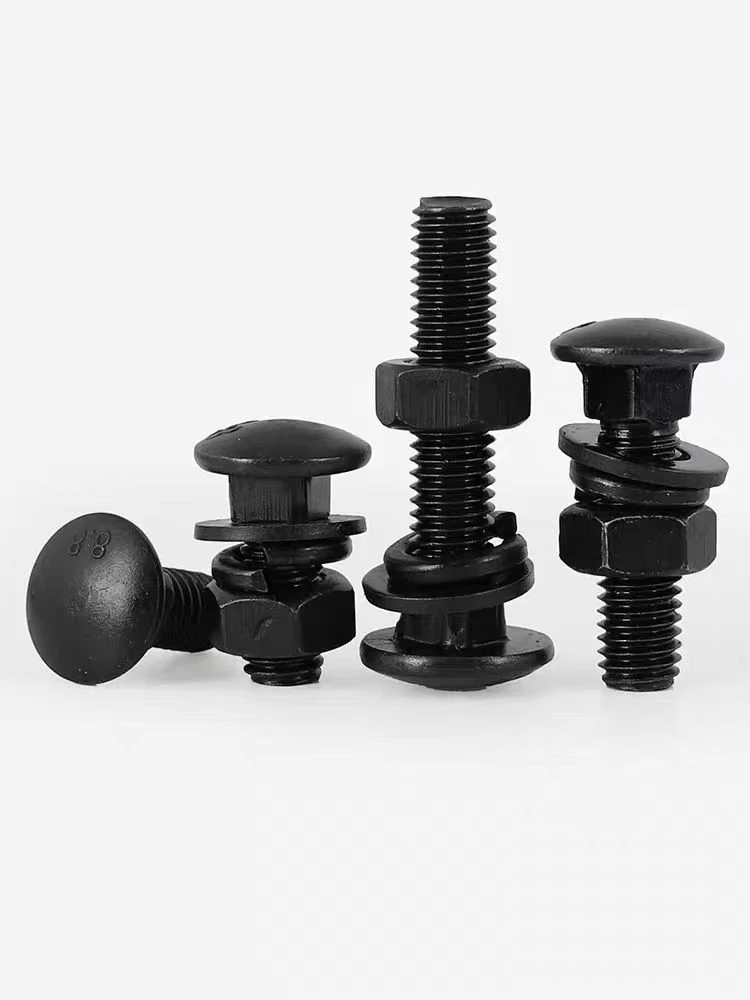

Comprehensive Guide to Self-Tapping Screw Types
Sep . 12, 2024 02:05 Back to list
Comprehensive Guide to Self-Tapping Screw Types
Understanding Self-Tapping Screw Types
Self-tapping screws play a crucial role in various construction and manufacturing processes. Unlike conventional screws that require a pre-drilled hole, self-tapping screws can create their own threading as they are driven into materials. This unique feature greatly enhances efficiency, making them a popular choice in industries such as automotive, electronics, and furniture assembly. In this article, we will explore the different types of self-tapping screws and their specific applications.
1. Thread-Forming Screws
Thread-forming screws, also known as thread-cutting screws, are designed to create internal threads in softer materials like plastic and some types of aluminum. These screws do not incise material but rather displace it to form a tight bond. This is ideal for applications where maximum holding strength is required, such as in plastic housings for electronic devices.
Thread-cutting screws are designed for use in harder materials such as metals. They have cutting edges that enable them to shear material away as they are inserted. This type of self-tapping screw is particularly beneficial in applications where access to pre-drilled holes is limited and where a strong connection is necessary. Common applications include metal brackets and electrical panels.
3. Self-Drilling Screws
self tapping screw types

Self-drilling screws, often referred to as Tek screws, feature a drill-like point that eliminates the need for a pilot hole. This makes them ideal for fastening metals and other tough materials, as they can penetrate without causing damage to the surrounding area. These screws are widely used in roofing, siding, and metal-to-metal applications because of their efficiency and durability.
4. Wood Screws
Self-tapping wood screws are specifically designed for fastening pieces of wood together. They typically have coarse threads that provide a strong grip in wood fibers. The design allows them to effectively engage with the material without splitting it, making them perfect for furniture assembly, cabinetry, and carpentry applications.
5. Specialty Screws
Beyond the common types, there are specialty self-tapping screws tailored for specific applications. These include screws designed for insulation, drywall, or masonry. Each type comes with unique features like different coatings, sizes, and thread patterns to enhance performance in varied environments.
Conclusion
Self-tapping screws are indispensable tools in modern construction and manufacturing. Understanding the different types available helps in selecting the right one for specific tasks, ensuring durability and efficiency for the job at hand. Whether for wood, metal, or plastics, the right self-tapping screw can make all the difference in achieving a strong and reliable connection.
Latest news
-
High-Strength Hot Dip Galvanized Bolts - Hebei Longze | Corrosion Resistance, Customization
NewsJul.30,2025
-
Hot Dip Galvanized Bolts-Hebei Longze|Corrosion Resistance&High Strength
NewsJul.30,2025
-
High-Strength Hot-Dip Galvanized Bolts-Hebei Longze|Corrosion Resistance&High Strength
NewsJul.30,2025
-
Hot Dip Galvanized Bolts-Hebei Longze|Corrosion Resistance&High Strength
NewsJul.30,2025
-
Hot Dip Galvanized Bolts - Hebei Longze | Corrosion Resistance, High Strength
NewsJul.30,2025
-
High-Strength Hot Dip Galvanized Bolts-Hebei Longze|Corrosion Resistance, Grade 8.8
NewsJul.30,2025

